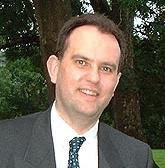The author of a new book 'Sex, Science and Profits,' Terence Kealey, has written an article in the Daily Telegraph 'Peer review: the myth of the noble scientist' explaining some of the issues surrounding problems with the peer review process [1] [2]. He notes that peer review often fails to prevent fraud in science and hinders the development of new discoveries. This has some bearing on those who are sceptical of evolutionary claims, as creationists are often accused of not publishing in peer-reviewed journals. The fact is though that access is denied to such journals for creation articles because the work does not fit the prevailing paradigm required by the publication, not because of a lack of quality.
Kealey for instance notes that scientists are often in disagreement over food science issues, such as the effect of coffee consumption and sweetener use on people’s health. He quotes a figure of 15 percent of scientists at the National Institute of Health in America who admit to ‘bending data to fit their theories.’ Thus he notes that it is a myth to claim that science is a noble search for truth. Instead scientists are driven by the emotion of selfishness, and this has gone on through history. For instance Hooke published his work on elasticity in coded form in 1676 with the anagram ‘ceiiinosssttuu’ so that no one else could claim credit for his work. In Latin it is ‘ut tension sic vis,’ or stress is proportional to strain.
Kealey argues that with the development of the Royal Society, science was supposed to have formed a level playing field. But he asserts that this is not true, as the Royal Society subsequently enabled a closed shop for discovery where peer review in effect has acted as a ‘gatekeeper’ to knowledge.
It is also true that reviewers are not able to test the experiments directly, and so papers are often published on the basis of the reputation of the author. Sometimes fraud gets through and important work is rejected. Barbara McClintock’s work on gene jumping in DNA later won her the Nobel Prize in 1983, but her work was published informally because her peers rejected it.
Unscrupulous reviewers may also steal ideas and prevent a new author from getting recognition. Kealey further comments that the Internet will mean that the peer review process will inevitably change, and that ‘peer review was always an illusion, providing a deceptive imprimatur of objective truth.’
Summary
Evolution is also held in society by the gatekeepers of the scientific establishment, not through reasoned and carefully thought out arguments. The Royal Society was established along the lines of Bacon’s scientific judiciary to carefully weigh knowledge claims in the place of God and King, but it has only served to act as a gatekeeper of knowledge where a council of ‘philosopher kings’ have been able to control science and dictate to society what people should believe. The Internet is indeed serving to democratise science where new ideas can be heard where once voices were blocked.
See also:
Sources
[1] Terence Kealey, (2008), 'Sex, Science and Profits,' Heinemann. The Author is Vice Chancellor of the University of Buckingham.
[2] Kealey, T., Peer review: the myth of the noble scientist, Daily Telegraph, 19/02/2008 http://www.telegraph.co.uk/earth/main.jhtml?xml=/earth/2008/02/19/scipeers119.xml
